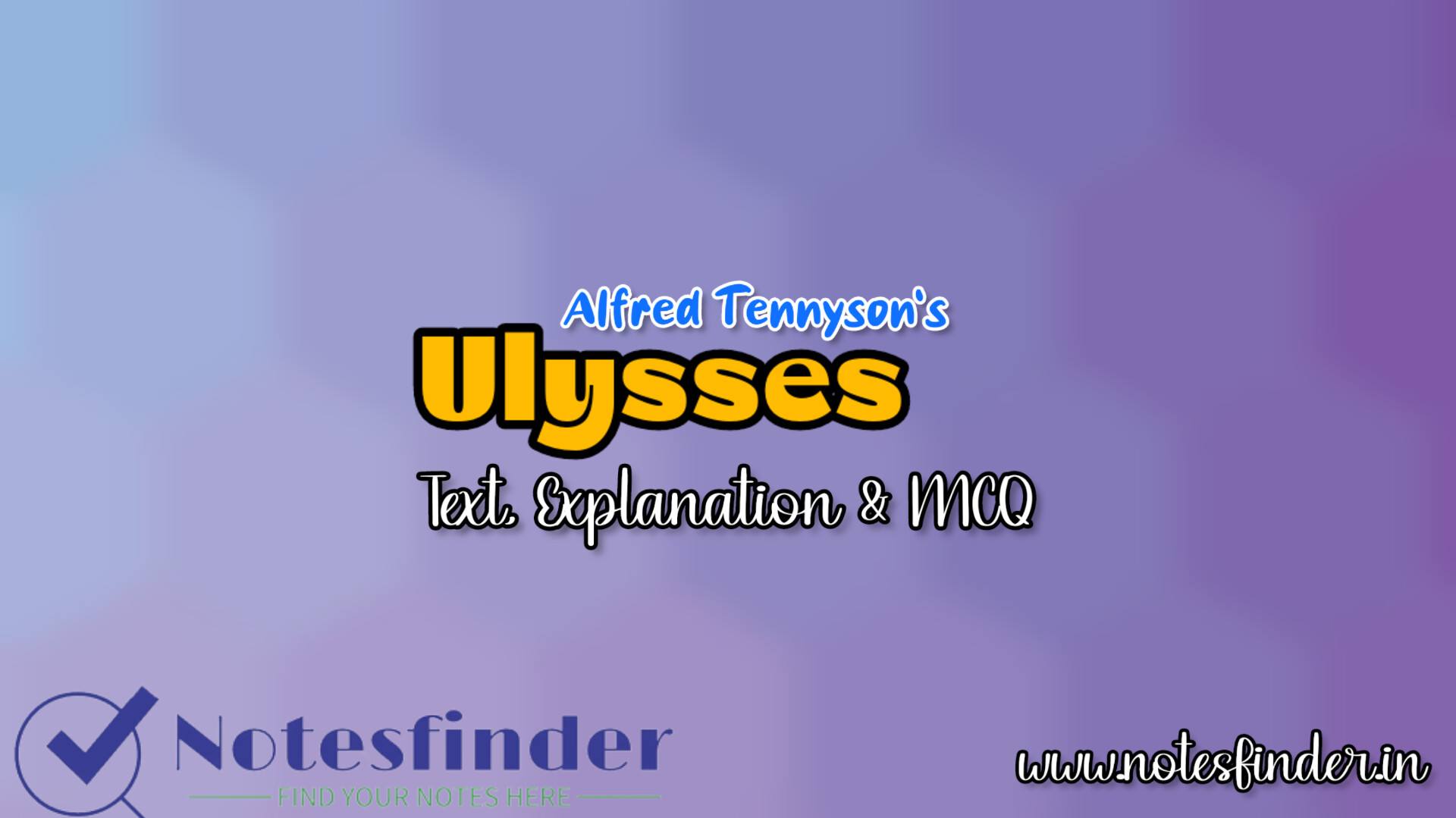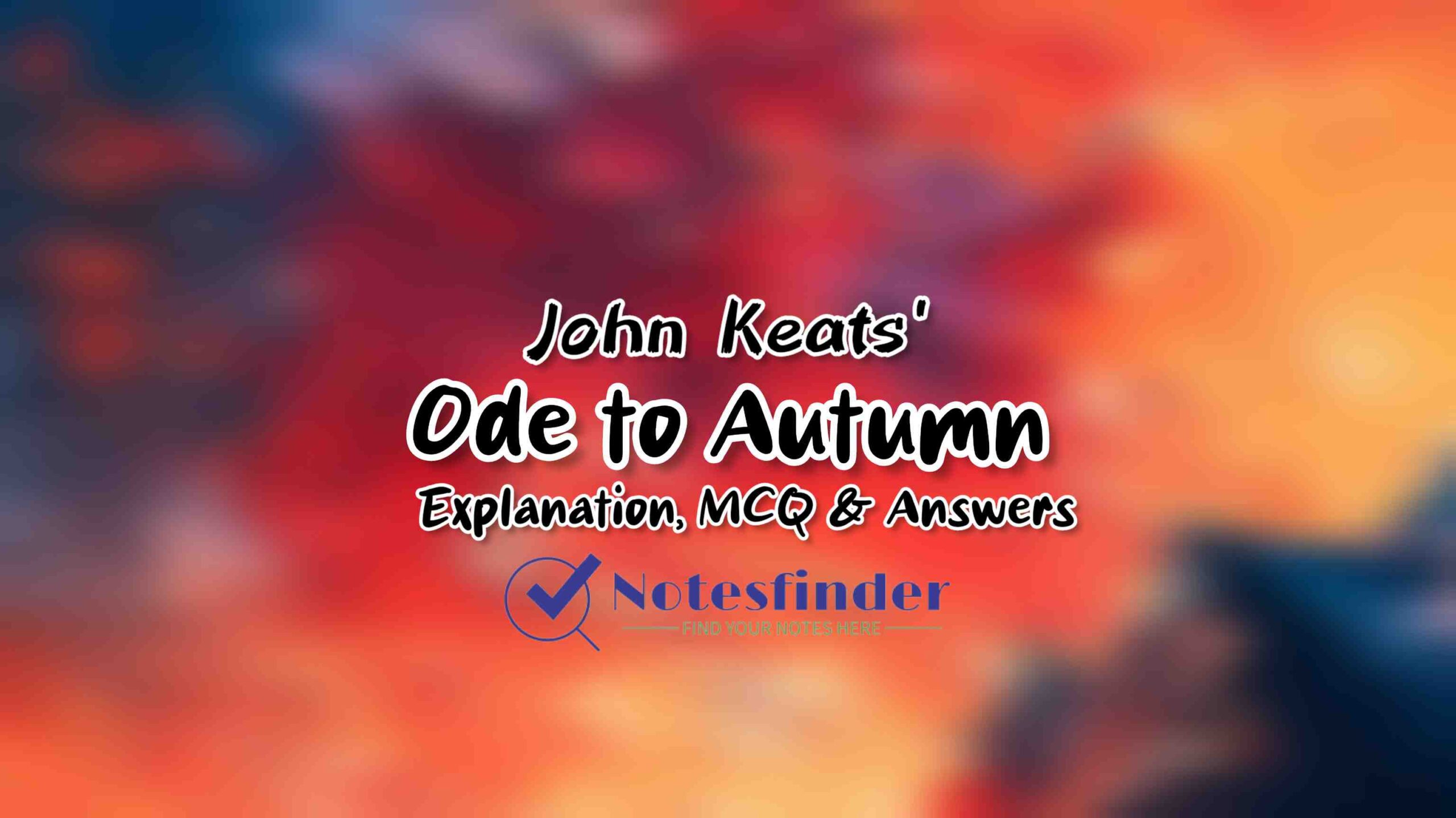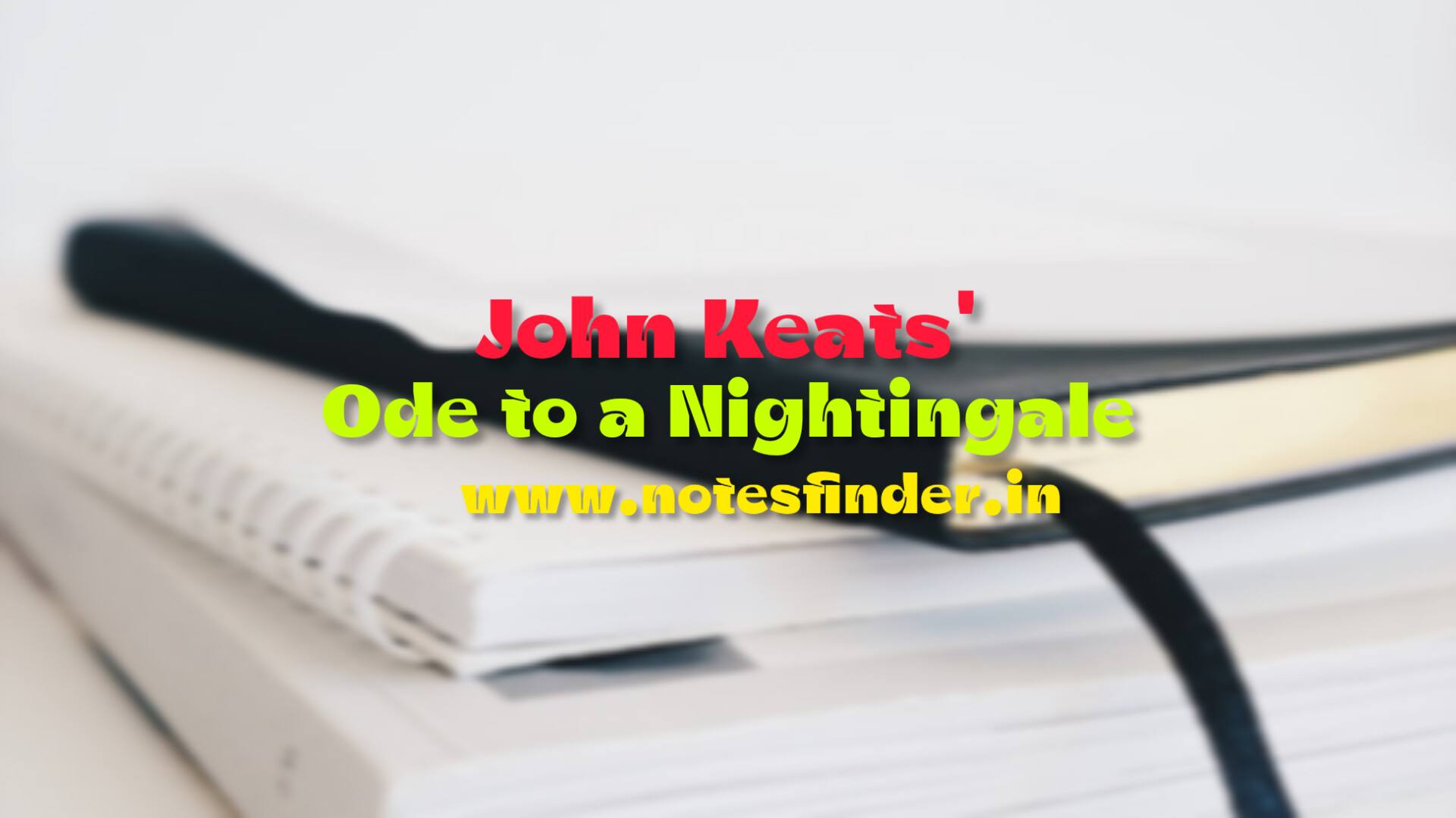She Dwelt among the Untrodden Ways
BY WILLIAM WORDSWORTH
She dwelt among the untrodden ways
Beside the springs of Dove,
A Maid whom there were none to praise
And very few to love:
A violet by a mossy stone
Half hidden from the eye!
—Fair as a star, when only one
Is shining in the sky.
She lived unknown, and few could know
When Lucy ceased to be;
But she is in her grave, and, oh,
The difference to me!
Word Notes
- Untrodden: Not walked upon or explored.
- Praise: Expressing admiration or approval.
- Violet: A small purple flower.
- Mossy: Covered with or resembling moss (a small, green plant).
- Ceased: To come to an end or stop existing.
- Difference: A distinct or noticeable contrast or variation.
Explanation
She dwelt among the untrodden ways
Beside the springs of Dove,
A Maid whom there were none to praise
And very few to love:
In this stanza, the poet introduces a young woman(Lucy) who lived in a secluded area, away from commonly traversed paths. She resided near the springs of the river Dove. The poet describes her as a maiden who received little admiration and love from others.
A violet by a mossy stone
Half hidden from the eye!
—Fair as a star, when only one
Is shining in the sky.
In this stanza, the poet compares the young woman to a violet flower situated near a mossy stone. The flower is partly hidden or not easily noticed. The poet further praises her beauty, comparing it to a single shining star in the sky, which stands out prominently.
She lived unknown, and few could know
When Lucy ceased to be;
But she is in her grave, and, oh,
The difference to me!
In the final stanza, the poet reflects on the young woman’s life. She lived in obscurity, and very few people were aware of her existence. When she passed away (referred to as Lucy ceasing to be), her departure went largely unnoticed by others. However, the poet personally feels a profound difference or impact due to her absence. The emphasis is on the poet’s personal connection and the impact this young woman had on his life.
Critical Summary
The poem “She Dwelt among the Untrodden Ways” by William Wordsworth is a melancholic reflection on the life and death of Lucy, a young woman who lived in seclusion. The poet portrays her as a figure who received little praise and love during her existence. The first stanza emphasizes her isolation, residing in an unexplored area by the springs of the river Dove. The second stanza compares her to a hidden violet, beautiful yet unnoticed, like a lone star in the sky.
The final stanza reveals that the young woman lived and died in relative obscurity, with only a few people aware of her presence or passing. However, the poet declares a personal connection to her, expressing deep sorrow and acknowledging the profound impact her absence has on him. The poem conveys a sense of loss, highlighting the contrast between the young woman’s overlooked life and the significant difference she made to the poet.
Figures of Speech in the poem
Simile: The line “Fair as a star, when only one is shining in the sky” contains a simile, comparing the maid’s beauty to that of a star.
Hyperbole: The line “A Maid whom there were none to praise and very few to love” contains hyperbole, emphasizing the extreme lack of recognition and love for the maid.
MCQs & Answers from She Dwelt among the Untrodden Ways
1. Who is the author of the poem?
A) William Blake
B) William Wordsworth
C) Samuel Taylor Coleridge
D) John Keats
Answer: B) William Wordsworth
2. What is the title of the poem?
A) She Walks in Beauty
B) The Raven
C) She Dwelt Among the Untrodden Ways
D) Ode to a Nightingale
Answer: C) She Dwelt Among the Untrodden Ways
3. Where did the maid dwell?
A) By the springs of Dove
B) On a hilltop
C) In a bustling city
D) By a riverbank
Answer: A) By the springs of Dove
4. How is the maid described in the poem?
A) Loved by many
B) Praise-worthy
C) Unknown and unloved
D) Bold and adventurous
Answer: C) Unknown and unloved
5. What is the simile used to describe the maid’s beauty?
A) A lily in the field
B) A shining star
C) A gentle breeze
D) A roaring lion
Answer: B) A shining star
6. How does the poet describe the violet?
A) Hidden in a forest
B) Blooming in a meadow
C) Half hidden from the eye
D) Surrounded by other flowers
Answer: C) Half hidden from the eye
7. What does the phrase “untrodden ways” imply?
A) Unexplored paths
B) Crowded streets
C) Ancient ruins
D) Deserted cities
Answer: A) Unexplored paths
8. How many people truly loved the maid?
A) Many
B) None
C) Very few
D) Everyone
Answer: C) Very few
9. What is the speaker’s emotional response to the maid’s death?
A) Happiness
B) Indifference
C) Regret and sorrow
D) Relief
Answer: C) Regret and sorrow
10. What is the speaker’s relationship with the maid?
A) Father and daughter
B) Romantic partners
C) Siblings
D) It is not specified
Answer: D) It is not specified
11. Which of the following words describes the maid’s beauty in the poem?
A) Ordinary
B) Dull
C) Fair
D) Ugly
Answer: C) Fair
12. Where is the maid now?
A) Living happily
B) In her grave
C) Lost in the woods
D) Traveling the world
Answer: B) In her grave
13. How does the speaker feel about the maid’s passing?
A) Happy
B) Indifferent
C) Sad
D) Excited
Answer: C) Sad
14. What is the central theme of the poem?
A) Nature’s beauty
B) Love and romance
C) Isolation and unnoticed beauty
D) Life and death
Answer: C) Isolation and unnoticed beauty
15. What does the poet compare the maid to in the first stanza?
A) A rose
B) A river
C) A star
D) A mountain
Answer: C) A star
16. How is Lucy described in the poem?
A) Unloved and unnoticed
B) Popular and praised
C) Mysterious and misunderstood
D) Courageous and adventurous
Answer: A) Unloved and unnoticed
17. How does the speaker feel about Lucy’s anonymity?
A) Indifferent
B) Happy
C) Sad
D) Excited
Answer: C) Sad
18. Which word best describes Lucy’s life?
A) Celebrated
B) Unknown
C) Exciting
D) Famous
Answer: B) Unknown
19. What does the phrase “the springs of Dove” refer to?
A) A river
B) A waterfall
C) A meadow
D) A mountain
Answer: A) A river
21. How is Lucy’s beauty portrayed in the poem?
A) Ordinary
B) Unremarkable
C) Fair and radiant
D) Plain and simple
Answer: C) Fair and radiant
22. What effect does Lucy’s passing have on the speaker?
A) No effect
B) A profound difference
C) Happiness
D) Confusion
Answer: B) A profound difference
23. What does the speaker mean by “The difference to me”?
A) The speaker is indifferent to Lucy’s passing.
B) The speaker is relieved by Lucy’s passing.
C) The speaker feels sadness and loss due to Lucy’s passing.
D) The speaker feels excitement and anticipation after Lucy’s passing.
Answer: C) The speaker feels sadness and loss due to Lucy’s passing.
24. How is Lucy’s life and death portrayed in relation to others?
A) Her life and death are celebrated by many.
B) Her life and death are noticed by everyone.
C) Her life and death go unnoticed by most.
D) Her life and death are significant in history.
Answer: C) Her life and death go unnoticed by most.
25. What is the mood of the poem?
A) Joyful
B) Melancholic
C) Exciting
D) Playful
Answer: B) Melancholic
26. What is the overall message of the poem?
A) The importance of fame and recognition
B) The beauty of nature
C) The significance of personal connections and the impact one person can have on another
D) The inevitability of death
Answer: C) The significance of personal connections and the impact one person can have on another
27. What is the rhyme scheme of the poem?
A) ABAB
B) AABB
C) ABBA
D) ABCB
Answer: B) AABB
28. How many stanzas are there in the poem?
A) 2
B) 3
C) 4
D) 5
Answer: B) 3
29. What type of meter is predominantly used in the poem?
A) Iambic pentameter
B) Trochaic tetrameter
C) Anapestic trimeter
D) Dactylic hexameter
Answer: A) Iambic pentameter
30. What is the effect of using iambic pentameter in the poem?
A) It creates a sense of urgency and excitement.
B) It emphasizes the regularity and musicality of the verses.
C) It conveys a sense of chaos and disorder.
D) It reflects the unpredictability of nature.
Answer: B) It emphasizes the regularity and musicality of the verses.
31. What literary device is used in the line “A violet by a mossy stone”?
A) Simile
B) Metaphor
C) Personification
D) Alliteration
Answer: A) Simile
32. What is the predominant mood conveyed through the poem?
A) Joyful
B) Mournful
C) Whimsical
D) Serene
Answer: B) Mournful



